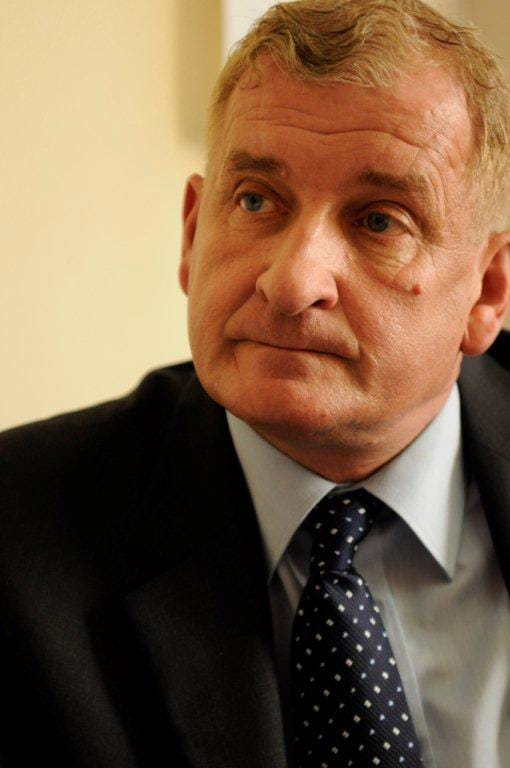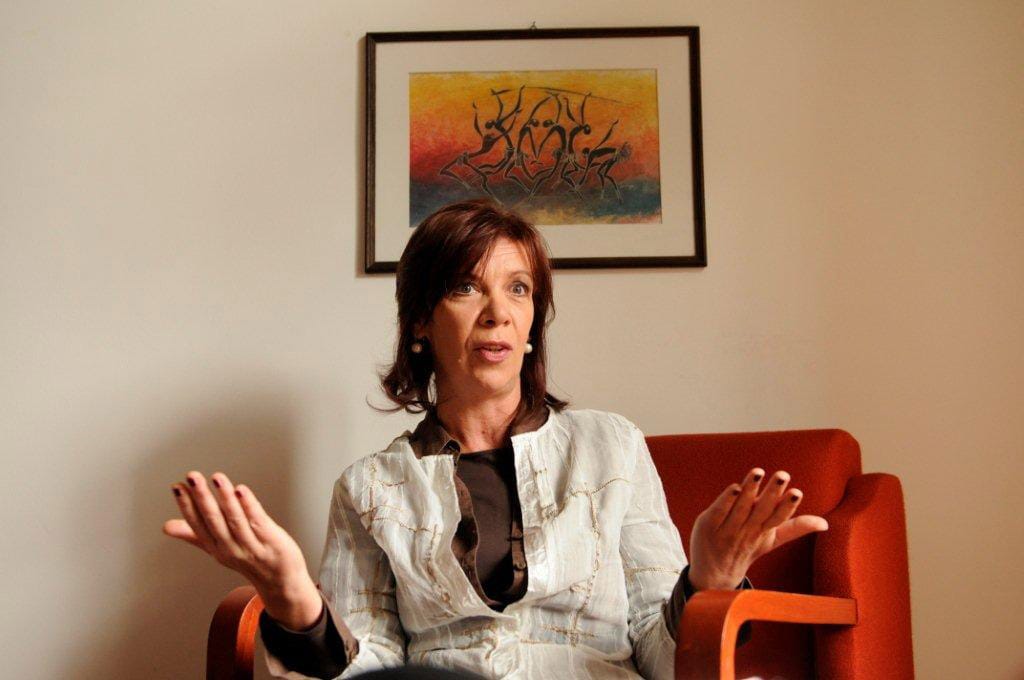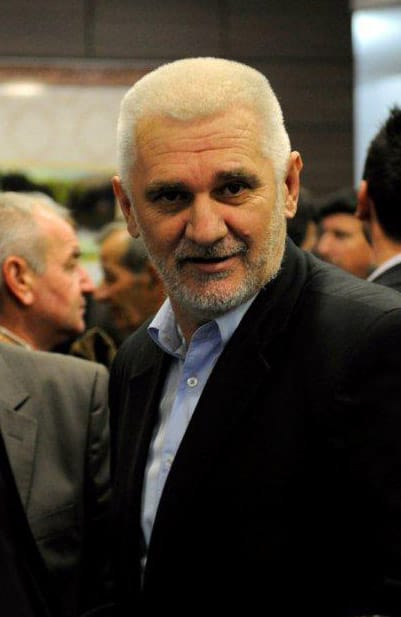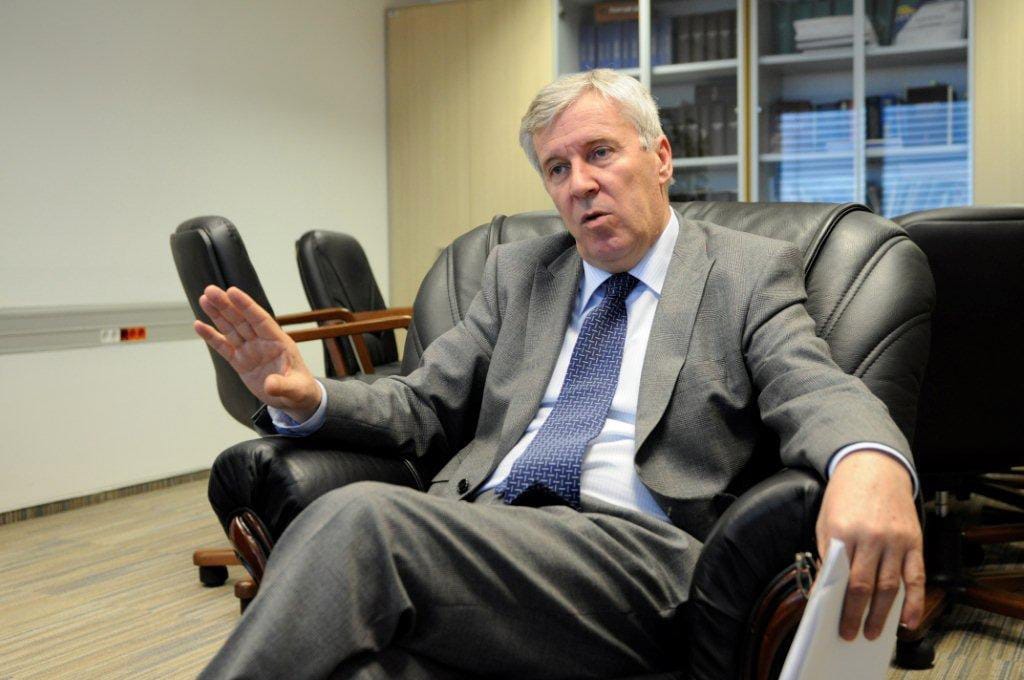Even though nearly three years ago he was sentenced for illegally spending money of the Post Bank of Bosnia and Herzegovina (BiH), Halid Galijašević works today as an investment manager in a public company BH Gas. He was hired without a public vacancy announcement in 2005, at a time when he was under investigation.
Galijašević is one of 25 office holders and government officials in BiH who have been pardoned between 2006 and 2010, according to data collected by the Center for Investigative Reporting in Sarajevo (CIN). They were prosecuted for corruption crimes while they served as ministers, mayors, judges, presidents of boards of directors, executives and inspectors. After receiving a pardon, some have continued to work in government agencies and public companies and in other public positions.
The Supreme Court of the Federation of BiH (FBiH) sentenced Galijašević on a binding verdict for abuse of office and authority in 2008. He was found guilty of signing off in May 2002 on a 70,000 KM loan and 50,000 KM grant to Mufid Lojo, the then director, so that Loio could buy an apartment. At the time, Galijašević was the president of the Board of Directors of BiH Post Bank. In return, Lojo signed off on a 50,000 KM loan for Galijašević.
Galijašević was sentenced to four and Lojo to six months in prison, but neither spent even a day behind bars. FBiH president Borjana Krišto commuted their prison sentences to two years probation in December 2009.
Galijašević said that this was justified because no material damages resulted from the crime he was found guilty of. The verdict notes that the Post Office Bank had not demanded compensation for damages.
Galijašević kept his job at BH Gas, and he remained on the Board of Directors of FBiH Bureau of Employment without interruption from April 2006 to November 2009.
War Criminals Alone Excepted from Pardon
Over the past five years 244 defendants out of 1,185 who requested pardons for various crimes have received them.
Only war crime defendants are refused pardon in BiH. The discretion to pardon lies with the members of the BiH Presidency, the presidents of the FBiH and Republika Srpska (RS), and the mayor of Brčko District, once they receive an opinion from the Pardon Commissions at the state or entity ministries of justice or the Brčko District’s Judiciary Commission. They don’t have to follow the opinion or elaborate on their reasons for pardoning someone.
A pardon can decrease a prison sentence, commute it to parole or even erase a defendant from the criminal records. Also, they can be fully absolved from going to prison.

In addition to Galijašević and Lojo Krišto, over the past four years has rescued from the prison: Hazim Vikalo, a former president of the Tuzla Canton government; then Pero Mađar, former head of Kiseljak municipality; and Branko Golub, former governor of Central Bosnia Canton. They were found guilty of abuse of office. Vikalo was saved from a four-month sentence while the sentences of Mađar and Golub, eight and six months respectively, were commuted to two years parole.
For some officeholders, pardon was slightly delayed. Kemal Terzić, former head of Donji Vakuf municipality, and Josip Merdžo, former president of Hercegovina Neretva Canton, served a part of their sentences before Krišto’s pardon. Instead of a year, Terzić spent seven months in prison and Merdžo six months.
Following pardon, some continued to work in public companies and in other executive positions. Terzić works for the BH Telecom, Mađar is the head of the Kiseljak branch of the FBiH Employment Bureau and Merdžo is secretary general of the Croatian Democratic Union (HDZ) 1990. Golub is a member of a Cantonal board of HDZ BiH, while Vikalo runs his business.
Purge of Verdicts in RS
Of 136 pardoned defendants in the RS, 23 saw their sentences simply erased. In other administrative divisions this type of pardoning has not been practiced.
Former RS presidents Milan Jelić and Rajko Kuzmanović have erased the criminal records of Đorđe Samojko, former justice at the Basic Court in Sokolac; Dragan Tovilović, director of the construction company ’11th November’ from Srbac; and Radomir Nešković, former director of the RS Broadcasting Corporation.
Samojko was sentenced for abuse of office, Tovilović for concluding a damaging contract and Nešković for neglect in office. They were fined between 1,000 and 2,000 KM. Erasing these offenses allowed the men to continue working in jobs that require clean police certificates and court records.
Nešković continued working as a professor at the Banja Luka School of Political Sciences, Tovilović is a deputy chief of Srbac municipality, and Samojko has a law practice in Sokolac.
‘This is the erasure of the past’ says Branko Todorović, executive director of the RS Helsinki Board for Human Rights. ‘The institute of pardon is being constantly abused. This is obviously a case of corruption. Those people, who have been sentenced, especially for corruption, either have loads of money or are part of political lobbies.’
Ashdown Banned Pardoning
Because of misuse, the former High Representative in BiH Paddy Ashdown suspended pardoning of politicians in September 2005 depending that a law on pardons be passed at all levels of governance.
Ashdown took this step after the 2004 pardon of Munib Jusufović, a Brčko legislator at the BiH Parliament’s House of Representatives. In July 2005 Alija Delimustafić, former BiH minister of internal affairs, and Miroslav Prce, former FBiH deputy minister of defense, were pardoned as well.
Jusufović and Prce were sentenced for abuse of office, the former to one year and the latter to five years in prison, while Delimustafić was sentenced to four years in prison for kidnapping. Jusufović is currently a member of FBiH Parliament. Delimustafić and Prce do not hold offices anymore.
Niko Lozančić, the former FBiH president who pardoned his former party colleague Prco, said their party affiliation was immaterial. The pardon came at the behest of the then FBiH vice-presidents Šahbaz Džihanović and Desnica Radivojević.
Ashdown said at a press conference that the practice of pardoning was ‘rife for political misuse’ and that it was ‘obviously easier for a criminal to get pardoned by his pals than for an ordinary citizen to pass a driver’s exam.’
Showing Mercy despite New Laws
The BiH Law on Pardons was passed in December 2005, the RS version in March 2006, the Brčko District acted in February 2007, and the FBiH in March 2009.
Despite the new laws it was business as usual at all levels of governance, except in Brčko where 12 people out of 66 were pardoned, none of whom had been sentenced for the abuse of office.
Over the past five years, the BiH government received 71 pardon requests which resulted in pardons for 14 persons, three for abuse of office.
In comparison with the other administrative divisions, FBiH leads in the number of pardoned politicians and office holders. Of 81 pardoned persons in 2009 and 2010, 13 had been prosecuted for abuse of office, and two more politicians and two other civil servants have committed other crimes as well. Most received pardons at home without having spent one day in prison.

‘It is not just, it is not educational, it is not reformative that a person who has not served a day in prison can be pardoned’ says Dalida Burzić, a judge of the Cantonal Court in Sarajevo.
Ferid Nikšić, the director’s aide for the treatment of prisoners at the Sarajevo penitentiary, said that he could not recall when he last saw an officeholder in his prison.
Prisoners interviewed by CIN reporters, said that they did not count on pardon because that was only for the privileged.
Burzić, who worked as a prosecutor in the Department for Financial Crimes at the Prosecutor’s Office of Sarajevo Canton before becoming judge, said prosecutors feel frustrated about pardons, because financial crimes and corruption cases are difficult to prosecute and take a long time.
‘When you manage to prove something of the kind and a court accepts it and hands down a sentence that is then upheld by the Supreme Court…and then something like that happens, that is annoying’ says Burzić.
According to data from the High Judicial and Prosecutorial Council, courts in BiH have handed down 59,663 verdicts for various crimes. Of this number, 526 or 3 percent resulted in acquittals. In 343 cases involving corruption, the verdict came down to probation, 122 defendants were fined and 61 were sentenced to prison.

Meanwhile, during the same year 10 persons were pardoned for abuse of office, eight in the FBiH.
Pardoning Politicians for Other Crimes
Politicians and office holders are not only pardoned for corruption but for other criminal acts as well.
The BiH Presidency in May 2008 pardoned Senaid Memić, deputy chairman of the Ilidža Municipal Council, turning a three-month prison sentence to two years parole.
The Court of BiH issued a legally binding sentence against Memić in 2006 because he verbally assaulted Judge Nenad Šeleda as he read a verdict concerning Memić’s son Senad, accused of illegal possession of weapons and explosive materials.
‘Do you have evidence, you monkey … Call yourself a justice? Look at you. Haven’t you listened, haven’t you watched? A Chetnik will not be my judge,” Memić yelled at the judge.
He was not suspended from work for his outburst, nor did he suffer any other consequences. He told CIN that he was not a criminal and that as a politician he had to react to injustice.
The decision of the former chairman of the BiH Presidency Haris Silajdžić on Memić’s pardon cites that the BiH Ministry of Justice gave a thumbs-up for the pardon. But Pardoning Commission President Jusuf Halilagić says the commission opposed it.

Asked by the CIN reporter if pardons are the result of backroom deals, Halilagić said that this practice was endemic around the world.
He said he had no idea why Memić was pardoned nor if he pulled some strings at the BiH Presidency.
Incompetent Doctor Back into His Old Job
Slobodan Marković, a doctor in the Zvornik hospital and a former councilman in Zvornik Municipality, once a member of the Socialist party and now of the Democratic People’s Party, was pardoned in March 2010 by then RS President Rajko Kuzmanović, after he had spent 15 months of a two-year sentence.
He was convicted in June 2008 for malpractice that left Verica Ninić unable to bear children. The verdict reads that because of inadequate medical treatment an infant died several hours after birth and Verica’s uterus was removed.
After the pardoning Marković returned to the same hospital, to his old job. ‘I have more and more patients. They have been waiting for me to return’ Marković said.
Five years later, Ninić says that Marković destroyed her life: ‘It weighs on my heart and soul’ she said. ‘It’s not fair.’







